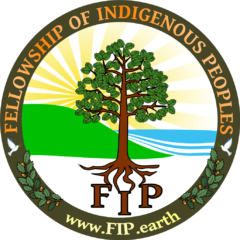Relevant Treaties and Conventions: Indigenous Peoples
United Nations Declaration on the Rights of Indigenous Peoples, 2007:
The first 5 Articles, of the full 46 Articles, read as follows:
Article 1
Indigenous peoples have the right to the full enjoyment, as a collective or as individuals, of all human rights and fundamental freedoms as recognized in the Charter of the United Nations, the Universal Declaration of Human Rights and international human rights law.
Article 2
Indigenous peoples and individuals are free and equal to all other peoples and individuals and have the right to be free from any kind of discrimination, in the exercise of their rights, in particular that based on their indigenous origin or identity.
Article 3
Indigenous peoples have the right to self-determination. By virtue of that right they freely determine their political status and freely pursue their economic, social and cultural development.
Article 4
Indigenous peoples, in exercising their right to self-determination, have the right to autonomy or self-government in matters relating to their internal and local affairs, as well as ways and means for financing their autonomous functions.
Article 5
Indigenous peoples have the right to maintain and strengthen their distinct political, legal, economic, social and cultural institutions, while retaining their right to participate fully, if they so choose, in the political, economic, social and cultural life of the State.
See: https://www.un.org/development/desa/indigenouspeoples/wp-content/uploads/sites/19/2018/11/UNDRIP_E_web.pdf [accessed 03/08/2022], or download a copy here: https://drunemeton-nation.net/wp-content/uploads/2022/08/UNDRIP_E_web.pdf [PDF, 32 pages].
Frequently Asked Questions on the United Nations Declaration on the Rights of Indigenous Peoples:

“What rights are ensured by the Declaration?
The Declaration addresses both individual and collective rights, cultural rights and identity, rights to education, health, employment, language, and others. The text says indigenous peoples have the right to fully enjoy as a collective or as individuals, all human rights and fundamental freedoms as recognized in the Charter of the United Nations, the Universal Declaration of Human Rights and the rest of international human rights law. Indigenous peoples and individuals are free and equal to all other peoples and individuals and have the right to be free from any kind of discrimination, in the exercise of their rights, in particular that based on their indigenous origin or identity. Indigenous peoples have the right to self-determination. By that right they can freely determine their political status and pursue their economic, social and cultural development. They have the right to maintain and strengthen their distinct political, legal, economic, social and cultural institutions, while retaining their rights to participate fully, if they choose to, in the political, economic, social and cultural life of the state.“
Read more: https://www.un.org/esa/socdev/unpfii/documents/faq_drips_en.pdf [accessed 03/08/2022], or download a copy here: https://drunemeton-nation.net/wp-content/uploads/2022/08/faq_drips_en.pdf [PDF, 2 pages].
“Who are Indigenous Peoples?” – United Nations Permanent Forum on Indigenous Issues:

“Understanding the term “indigenous”
Considering the diversity of indigenous peoples, an official definition of “indigenous” has not been adopted by any UN-system body. Instead the system has developed a modern understanding of this term based on the following:
• Self- identification as indigenous peoples at the individual level and accepted by the community as their member.
• Historical continuity with pre-colonial and/or pre-settler societies
• Strong link to territories and surrounding natural resources
• Distinct social, economic or political systems
• Distinct language, culture and beliefs
• Form non-dominant groups of society
• Resolve to maintain and reproduce their ancestral environments and systems as distinctive peoples and
communities.
A question of identity
• According to the UN the most fruitful approach is to identify, rather than define indigenous peoples. This is based on the fundamental criterion of self-identification as underlined in a number of human rights documents.“
Read more: https://www.un.org/esa/socdev/unpfii/documents/5session_factsheet1.pdf [accessed 03/08/2022], or download a copy here: https://drunemeton-nation.net/wp-content/uploads/2022/08/5session_factsheet1.pdf [PDF, 2 pages].
Definition of “indigenous peoples” according to C169 Indigenous and Tribal People’s Convention, 1989:
“1. This Convention applies to:
(a) tribal peoples in independent countries whose social, cultural and economic conditions distinguish them from other sections of the national community, and whose status is regulated wholly or partially by their own customs or traditions or by special laws or regulations;
(b) peoples in independent countries who are regarded as indigenous on account of their descent from the populations which inhabited the country, or a geographical region to which the country belongs, at the time of conquest or colonisation or the establishment of present state boundaries and who, irrespective of their legal status, retain some or all of their own social, economic, cultural and political institutions.2. Self-identification as indigenous or tribal shall be regarded as a fundamental criterion for determining the groups to which the provisions of this Convention apply.”
Read more: https://www.ilo.org/dyn/normlex/en/f?p=NORMLEXPUB:12100:0::NO::P12100_ILO_CODE:C169 [accessed 03/08/2022].
“About Indigenous Peoples and Human Rights” – OHCHR – Office of the High Commissioner, United Nations Human Rights:
“There is no singularly authoritative definition of indigenous peoples under international law and policy, and the Indigenous Declaration does not set out any definition. This decision was taken intentionally by the drafters based on the rationale that the identification of an indigenous people is the right of the people itself—the right of self-identification- and a fundamental element of the right to self-determination. Indigenous peoples’ situations and contexts are highly variable; any single definition will not fully capture the full diversity of the indigenous peoples of the world.“
Read more: https://www.ohchr.org/en/indigenous-peoples/about-indigenous-peoples-and-human-rights [accessed 03/08/2022].
‘International Day of the World’s Indigenous Peoples’ is observed on 9th August every year: https://www.un.org/development/desa/indigenouspeoples/international-day-of-the-worlds-indigenous-peoples.html

